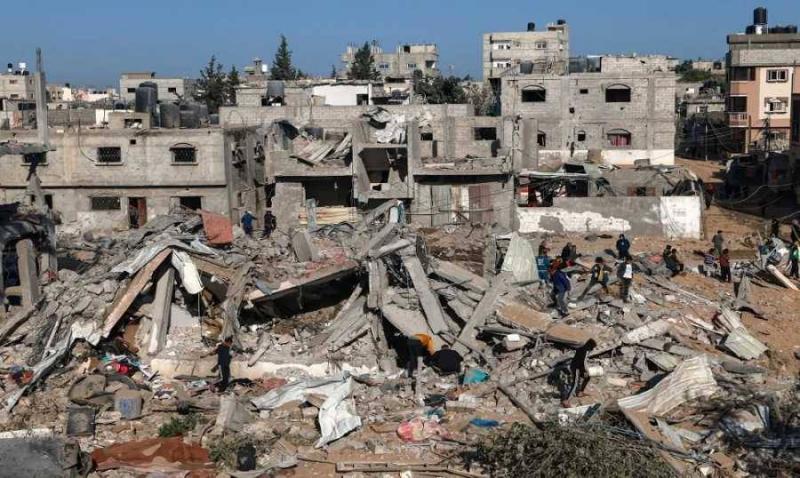The United States and Israel will hold a virtual meeting on Monday to discuss alternative proposals from U.S. President Joe Biden’s administration concerning a potential Israeli military attack on Rafah, according to statements from four Israeli and American officials to Axios. The meeting was originally scheduled for last week, but the U.S. decision not to veto a U.N. Security Council resolution calling for a ceasefire in Gaza led Israeli Prime Minister Benjamin Netanyahu to announce the cancellation of the meeting. "One day later, he sent quiet messages to the White House requesting to reschedule the meeting," Axios reported.
The Biden administration has indicated that "the operation in Rafah," where over a million Palestinians have sought refuge, could result in significant civilian casualties and exacerbate the humanitarian disaster in Gaza. Israeli Strategic Affairs Minister Ron Dermer has informed Netanyahu several times in recent days that Israel should send a delegation to Washington as soon as possible "to avoid further escalation of tensions with Biden." Senior Israeli officials stated that holding a virtual meeting is a way for Netanyahu to "save face" and engage in discussions with the White House regarding Rafah without sending a delegation to Washington.
The meeting will be conducted via a video call, as confirmed by Israeli and American officials. National Security Advisor Jake Sullivan will lead the U.S. side, involving representatives from the Pentagon, State Department, and U.S. intelligence agencies. Dermer and Netanyahu’s National Security Advisor Tzachi Hanegbi will lead the discussions on the Israeli side, accompanied by senior Israeli defense and intelligence officials. A senior Israeli official mentioned that a second in-person meeting is planned for the following week.
After initially expressing strong support for Israel in the early months of the war, the Biden administration has come to believe that the Israeli state is capable of conducting targeted operations rather than launching a broad ground attack on Rafah in light of the "dire" humanitarian situation in the Palestinian territory. The large city of Rafah is home to approximately 1.5 million people, according to the United Nations, the vast majority of whom have been displaced due to the war that erupted following the Hamas attack on Israeli territory on October 7.
On March 22, Netanyahu and Blinken expressed conflicting views regarding a large-scale Israeli ground attack in the southern Gaza city of Rafah, with Washington warning that it would worsen its ally’s isolation. During a roughly forty-minute meeting in Tel Aviv, Netanyahu informed Blinken of his intention to carry out an attack in Rafah, which he described as "the last bastion of Hamas," even without U.S. support for the step. After meeting with Blinken, Netanyahu stated, "There is no way to defeat Hamas without entering Rafah and eliminating its remaining battalions there," adding, "I told him that I hope to do this with U.S. support, but if necessary, we will do it alone," according to AFP. Besides emphasizing the urgent need to increase humanitarian aid to the besieged Palestinian territory devastated by the war, Blinken expressed U.S. opposition to this ground operation during what was described as a "frank" discussion.




